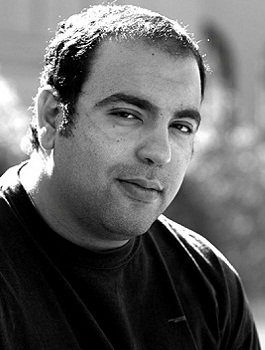 Why do we still live in Cairo?
Why do we still live in Cairo?
I ask myself this question every day, much like millions of inhabitants of this city, as I curse every God in the heavens while trying to navigate my way through the streets of Cairo to get from one neighborhood to the next.
Every morning I’m filled with dread before heading out into the ever-shrinking streets of this gloriously overpopulated city. Tweets slathered with curses, pleas for help, and the rare glimmer of hope of a not overly populated route followed by #cairotraffic hashtag bombard my phone. The traffic and the pleas only compound the stress and the misery faced by all of us.
Every morning I feel as if I am about to willingly enter a psychotic mega game of bumper-cars, hoping I make it to my destination only slightly late and my car in one piece. Every morning, as the hours of my life keep ticking away, I ask myself the same question: Why do we live in Cairo?
People live in cities for three reasons: quality of life, financial opportunity, and socialisation. This city, however, makes a mockery out of all those reasons.
A quality of life, without a huge army of car-cleaning, house-cleaning, and delivery-of-everything slaves – and given their wages, they are no better than slaves – to supplement it, would be pitiful. Imagine if there was no delivery of anything for a second, and you had to go out to the streets of Cairo to get everything yourself.
Horrifying, isn’t it?
Socialisation is also suspect, since the hostility of the city toward everyone and everything makes social outings an obligation more than a pleasure most of the time. People stay later than any sane person would on work-days, just so they don’t face traffic on their way home, and yet sometimes, somehow, they still manage to find themselves in another traffic jam.
There really isn’t a single reason to live in this city outside financial opportunity, and with its rising costs, even that reason is becoming suspect. Everything is so expensive that we live on credit, which, if you take a look at Spain, Greece, Italy or even the US, is not a good idea.
Despite those reasons, everyone stays, unless it’s to get out of the country completely. More and more people, however, keep coming to this glorified mouse-trap, because all the companies are here, and the companies are here because the other companies are here. And nobody ever questions the logic of this, even though it’s very easy to.
Sure, Cairo is the business hub of Egypt, but that doesn’t mean we need to be based here to do business here. In reality, other cities offer cheaper rent, cost of living, and all of the amenities we need. Since most of us do our work via email anyway, there is literally no reason why people of capital choose to start new businesses here. The question of why not move the businesses elsewhere, while maintaining satellite/virtual offices or shared work spaces in Cairo-which would minimize the costs dramatically- somehow never gets answered convincingly.
We are here, because everyone else is here, and we envy and hate anyone who manages to set-up their business elsewhere.
So, where would we move, you would ask? Well, it really depends on how far you want to remove yourself from the city. The short answer is the coasts. If you want close proximity to Cairo, Ein Sokhna, Ismaelia and Port Said are all excellent options. You live on the beach, rent is cheap, the infrastructure is there, there is virtually no traffic, and you are one-hour away by car or bus, which if you work in advertising, marketing, training or consulting companies, is quite perfect.
If you are looking for something slightly further, the North Coast is the answer. All of the aforementioned reasons, with even less people, and millions of residential units empty for a majority of the year await you if you decide to relocate. What more could a carpetbagger from the city need in a home away from home, than a city nearby, Alexandria. Why people working in Information Technology have not moved there yet to create their own silicon valley is beyond me.
With Borg El-Arab and Alamein airports available, for both consumer and cargo travel, awaiting people to move there to become fully operational.
With a little bit of imagination and investment, the Northcoast could become a huge business hub. Yet no one is moving there.
As for those who are looking for a clean getaway, Sharm ElSheik and Hurghada await you. They have all the things mentioned before, plus a ton of hotels, restaurants and activities. Why the Egyptian cinema industry isn’t based in the former, with production companies like Good News building studios in 6 of October instead of Sharm ElSheikh, or why the Telecom industry does not base its main offices in Hurghada, is beyond me.
Even though it is quite obvious to everyone those cities might require a more sustainable income besides tourism, and the cost of living and doing business there is significantly less than Cairo, it still defies logic that no major industry builds headquarters there.
Yes, some people have family ties and responsibilities that make it impossible to leave Cairo, but for the rest of us, there is no excuse not to get out of town. Aside from living in the New Cairo and 6 October compounds, as they us a slight reprieve from traffic when we get home, most people still have to navigate causeways of misery to reach Cairo. Any trip into the city- whether through the always crowded Mehwar or the Death trap called the Ring Road- becomes a crucible, and if we are going to live on desert land, we might as well have a beach nearby.
I know big corporations will probably require things like government planning and tax incentives to move elsewhere, but small and medium enterprises do not.
So, dear small and medium enterprise owners and people intent on opening new businesses: Do us all a favor and move already. We are all waiting for our way out, and, right now, you are our only hope.



